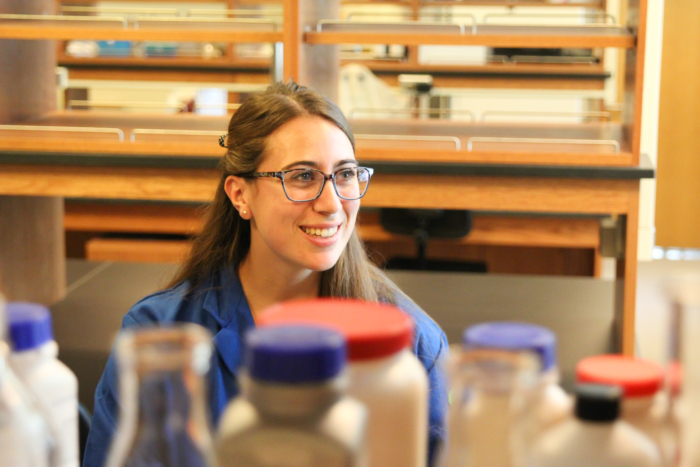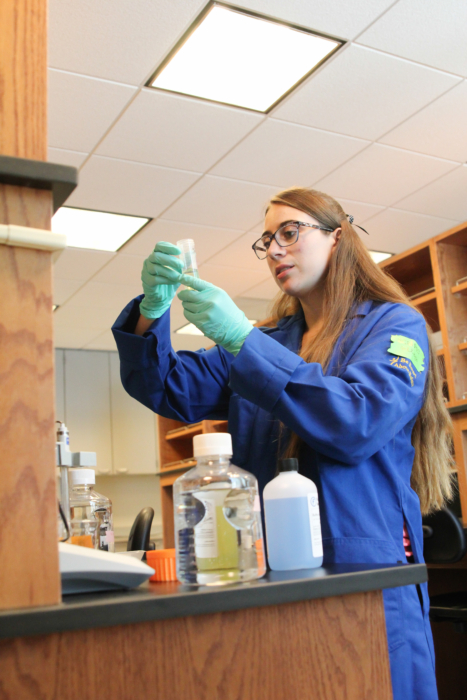
What can humans learn from zebrafish? According to Amanda Maheras ’17, apparently quite a lot. As Maheras explains, “Zebrafish brains have the capacity to regenerate, so we can utilize zebrafish as a model organism to better understand brain regeneration and repair. This not only provides insight into human concussions, but also other neurological disorders.”
Working as a research assistant in Assistant Professor of Biology Rory Spence’s lab, Maheras is spending her summer observing zebrafish in order to uncover why it is that human brains have limited repair mechanisms after mild traumatic brain injuries, or concussions. Spence’s lab recently developed a model that looks at protein levels in the fish’s brain to examine how the organism recovers after trauma.
As a biology major and environmental analysis minor, Maheras began learning about neurology and picking up useful research skills in a few of her classes this past year, including Spence’s Neuroscience 2: Systems class as well as Assistant Professor of Biology Barbara Fortini’s Genomics and Bioinformatics course. According to Maheras, it was these classes that initially sparked her interest in working as part of Spence’s research team.
Improving upon the bioinformatics skills she gained during her coursework, this summer Maheras is learning new lab techniques, including dissection under a microscope and immunohistochemistry, or the process of detecting proteins in the cells of a tissue. Maheras is also honing her research skills—reading relevant literature, digging into additional questions, solving problems, and sharing ideas with her fellow lab mates. Hoping to go into research post-graduation, Maheras emphasizes the value of this experience in helping her reach her future goals.
“This opportunity is allowing me to experience all aspects of life as a researcher, and is preparing me for further studies as a graduate student and ultimately for my career as a researcher,” she says.
Furthermore, although she is working under Spence’s tutelage, Maheras has had the opportunity explore her own ideas.
“Spence’s lab is very self-directed, giving me the flexibility to delve further into areas of personal interest.”
Maheras plans to take the research skills and investigative capabilities she has acquired with her not only to back to Scripps in the fall, but also into the work she will do down the road.
“Through this experience, I have increased my confidence in my abilities to not only perform particular techniques, but also to find solutions to problems as they arise. Not only do I have incredible lab mates I get to work with, but this research experience also allows me to be self-reliant, which is a significant skill to carry into the future.”

